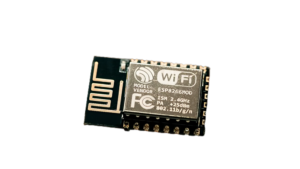ARDUINO DUE AT91SAM3X8E ARM Cortex-M3 Board
₨8,800.00
The Arduino Due is a powerful 32-bit development board based on the Atmel SAM3X8E ARM Cortex-M3 microcontroller. Operating at 84 MHz with 512 KB flash and 96 KB SRAM, it offers enhanced speed and memory for complex applications. Featuring 54 digital I/O pins, 12 analog inputs, 2 DACs, and multiple communication interfaces including UART, SPI, I2C, CAN, and USB, the Due is ideal for advanced IoT, robotics, and real-time control projects. It runs on 3.3V logic and is fully compatible with the Arduino IDE.
Description
Introduction to Arduino Due ARM Cortex
The Arduino Due, based on the Atmel SAM3X8E ARM Cortex-M3 processor, represents a significant step forward in the Arduino ecosystem. Unlike its 8-bit predecessors, this 32-bit board delivers improved speed, memory, and functionality. As a result, it is ideal for advanced embedded systems and Internet of Things (IoT) applications. Moreover, it retains compatibility with the popular Arduino IDE, making it accessible even to beginners while still being powerful enough for professionals.
Key Features of Arduino Due ARM Cortex
Firstly, the Arduino Due runs at 84 MHz, providing a noticeable performance boost over traditional boards. It also includes 512 KB of flash memory and 96 KB of SRAM, which supports more complex applications. In addition, the board features 54 digital I/O pins, 12 analog inputs, 4 UARTs, and a dual DAC output, which allows for precise analog signal generation. Furthermore, the Due offers both native and programming USB ports, enabling versatile communication and programming options. Significantly, it supports SPI, I2C, and CAN protocols, making it ideal for IoT networks that require multiple data communication interfaces.
Specifications of Arduino Due ARM Cortex
-
Microcontroller: Atmel SAM3X8E ARM Cortex-M3
-
Operating Voltage: 3.3V
-
Recommended Input Voltage: 7–12V
-
Clock Speed: 84 MHz
-
Digital I/O Pins: 54 (12 support PWM output)
-
Analog Input Pins: 12
-
DAC Channels: 2 (12-bit resolution)
-
Flash Memory: 512 KB
-
SRAM: 96 KB
-
Communication Interfaces: UART, SPI, I2C, CAN, USB
-
USB Ports: Native USB port and Programming USB port
Significance in IoT
Due to its enhanced performance and extended I/O capabilities, the Arduino Due is particularly suitable for IoT systems that require fast data processing and real-time responsiveness. For instance, smart home systems, industrial automation, and sensor-intensive monitoring networks benefit from its computational power and rich connectivity options. In contrast to older Arduino models, the Due provides true 32-bit processing with larger memory space, allowing developers to implement complex algorithms, manage multiple sensor inputs, and ensure faster communication with cloud platforms or local servers. Additionally, because it supports CAN bus, it can be easily integrated into automotive or industrial IoT environments—making it more versatile than many comparable development boards.
Conclusion
In summary, the Arduino Due ARM Cortex is a powerful and flexible platform for developing high-performance IoT applications. Thanks to its 32-bit architecture, rich interface options, and fast processing speed, it significantly expands what developers can achieve with Arduino. While it may have a steeper learning curve compared to basic boards like the Uno, its capabilities make it well worth the investment for anyone aiming to build scalable, connected solutions. Ultimately, whether you are transitioning from basic microcontrollers or exploring advanced IoT development, the Arduino Due provides a solid foundation for your projects.
Visit our website Ampflick for more products.
You can also visit our Instagram and Facebook for latest update
Only logged in customers who have purchased this product may leave a review.







Reviews
There are no reviews yet.